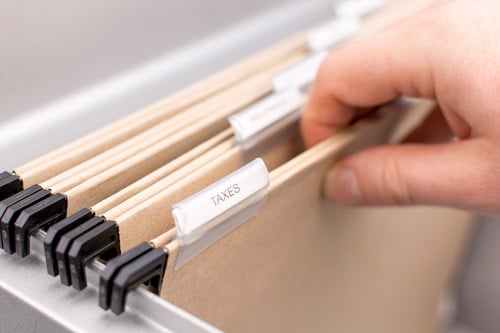Overhaul in taxes and regulations needed to halt steady home price growth

Local politicians in British Columbia are calling for an overhaul of the housing system with significant tax and regulatory changes in order to bring skyrocketing real estate and rental prices back to levels local residents can afford.
The Union of B.C. Municipalities has issued a report containing 32 recommendations for provincial and federal governments based on research and best practices from across Canada and around the world.
Mayor Greg Moore of Port Coquitlam led the initiative for the union and said there are numerous reasons for the crisis in housing affordability that require a “multitude of solutions.”
“The frustrating part that I see is many individuals and associations come out and say, ‘Well if we just did (housing) supply then everything would be solved.’ Well it’s much more sophisticated than that,” Moore said, as quoted by The Canadian Press.
“It has to look at the continuum of housing. Rental plays an extremely important part in that, but so does the demand management side of it.”
Speculation by foreign and domestic investors has contributed to escalating real estate prices in Metro Vancouver, which has had a spillover effect on other B.C. communities and the rental market, he said.
Using taxes as a tool along with stronger regulations at the municipal level is the winning road to fix a complex issue, Moore said.
Read more: Vancouver market could ease by Q3 2018 – BCREA
To curb real estate speculation, the union is requesting the province to consider expanding its 15% tax on foreign buyers in Metro Vancouver to include other areas, such as Victoria, where markets have been heating up. It also wants a review to determine if the 15% rate is sufficient.
The strategy also called for more transparency around who owns property.
University of B.C. geography professor David Ley, who contributed to the report, said the United Kingdom provides a good example where regulatory changes now require identifying the owner, preventing foreign investors from dodging taxes or laundering money.
“We want a declaration of who the actual owner is,” Ley said, noting that property in B.C. can be owned by trusts or companies, hiding the person behind the purchase.
Taxes have also been suggested to cut at the heart of the issue of profit-driven property flipping that has fuelled some B.C. markets, Ley said.
The strategy included a sellers’ tax on those who flip their homes within a few years of purchase to make a profit. It also called for a more progressive tax system that will hit luxury properties at a higher rate.
“What we need to recognize here is that we’re in a very abnormal situation in Vancouver, abnormal in the scale of the affordability crisis, and it does require determined response from government,” Ley said, adding a similar strategy could be helpful in Toronto where affordability has reached similar crisis levels.
Related stories:
2018 home sales in B.C. expected to decline – economists
B.C. boosts homeowner grant as assessed value of homes rises again
The Union of B.C. Municipalities has issued a report containing 32 recommendations for provincial and federal governments based on research and best practices from across Canada and around the world.
Mayor Greg Moore of Port Coquitlam led the initiative for the union and said there are numerous reasons for the crisis in housing affordability that require a “multitude of solutions.”
“The frustrating part that I see is many individuals and associations come out and say, ‘Well if we just did (housing) supply then everything would be solved.’ Well it’s much more sophisticated than that,” Moore said, as quoted by The Canadian Press.
“It has to look at the continuum of housing. Rental plays an extremely important part in that, but so does the demand management side of it.”
Speculation by foreign and domestic investors has contributed to escalating real estate prices in Metro Vancouver, which has had a spillover effect on other B.C. communities and the rental market, he said.
Using taxes as a tool along with stronger regulations at the municipal level is the winning road to fix a complex issue, Moore said.
Read more: Vancouver market could ease by Q3 2018 – BCREA
To curb real estate speculation, the union is requesting the province to consider expanding its 15% tax on foreign buyers in Metro Vancouver to include other areas, such as Victoria, where markets have been heating up. It also wants a review to determine if the 15% rate is sufficient.
The strategy also called for more transparency around who owns property.
University of B.C. geography professor David Ley, who contributed to the report, said the United Kingdom provides a good example where regulatory changes now require identifying the owner, preventing foreign investors from dodging taxes or laundering money.
“We want a declaration of who the actual owner is,” Ley said, noting that property in B.C. can be owned by trusts or companies, hiding the person behind the purchase.
Taxes have also been suggested to cut at the heart of the issue of profit-driven property flipping that has fuelled some B.C. markets, Ley said.
The strategy included a sellers’ tax on those who flip their homes within a few years of purchase to make a profit. It also called for a more progressive tax system that will hit luxury properties at a higher rate.
“What we need to recognize here is that we’re in a very abnormal situation in Vancouver, abnormal in the scale of the affordability crisis, and it does require determined response from government,” Ley said, adding a similar strategy could be helpful in Toronto where affordability has reached similar crisis levels.
Related stories:
2018 home sales in B.C. expected to decline – economists
B.C. boosts homeowner grant as assessed value of homes rises again



